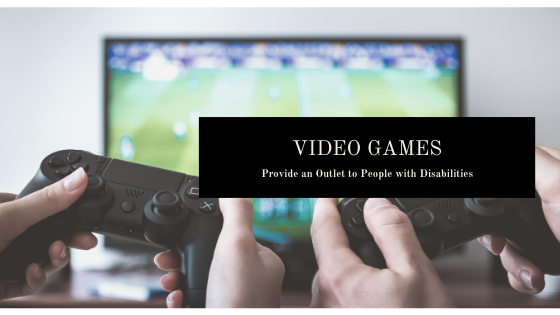According to the Centers for Disease Control and Prevention, there are 61 million individuals with disabilities living in the United States alone. That is 26% of the adult population or 1 out of 4 people.
These disabilities vary immensely between being physically or mentally centered, but having any can impact an individual’s quality of life. Social and physical isolation is common among people with disabilities. Not being able to perform day-to-day tasks, or even leave the house, can lead to crushing discouragement.
However, especially with technological advances in the digital age, Video games can often provide an outlet for relief and inclusion for these individuals. This can be true for several reasons.
To begin with, video games are a great distraction from the real world. Regardless of genre, a good game pulls you into its world, allowing the user to forget about your problems. And for individuals with disabilities, they are offered the same opportunity to immerse themselves in a new world.
Many gamers with disabilities call the virtual realms an escape from reality. The same is true for everyone. Video games are an outlet for gamers with or without disabilities, for anyone looking for another life.
The distraction isn’t the sole appeal of games. Video games can also become major hubs for socializing. Many games are driven by online, real-time interactions. As a result, games are incredibly connective. People from all walks of life can assume new identities and work together to complete a common objective.
Consistent teamwork builds strong friendships, even among strangers. People bond over mutual interests. By default, all of the users have a mutual interest – the game itself. There are even communities for single-player and offline games, which reside in forums and social media.
This is a huge benefit for gamers with disabilities as well. Not only do they enjoy a safe space to have fun (the game itself), but they also have an opening to make friends and join social groups. All of this is possible to do from home, most often times for free.
Video games bring friendship, activities, and entertainment directly into homes for children and adults alike. For those who can only leave the house with a great deal of effort, this reality (or, rather, virtual reality) is life-changing. In particular, individuals with disabilities are given new opportunities for fun and mental stimulation.

